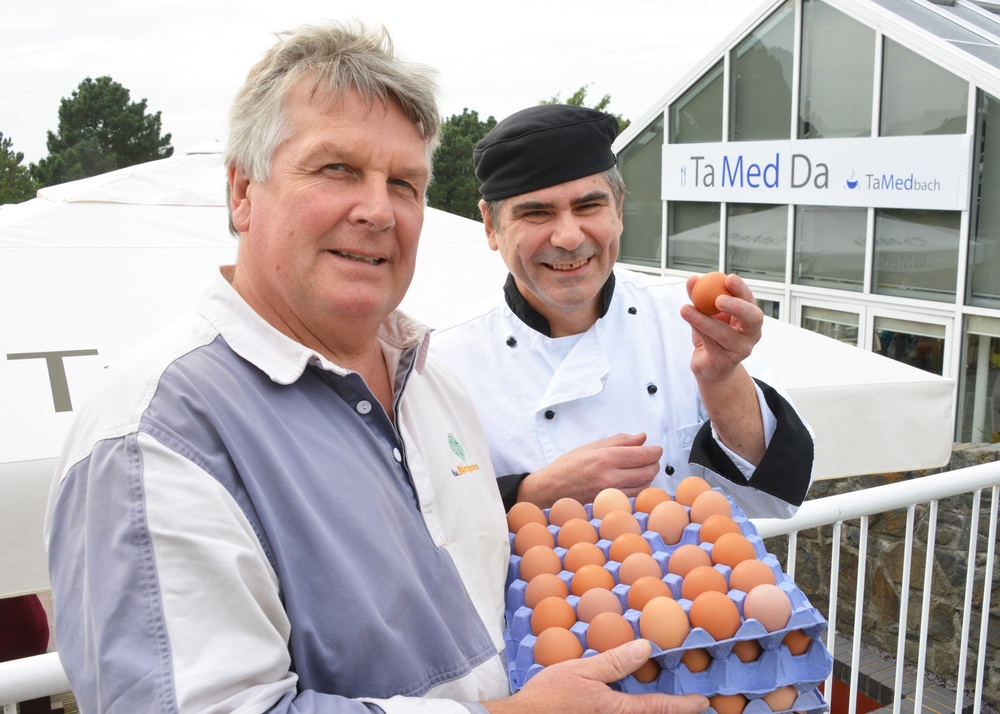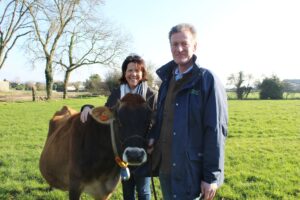
(Wednesday 16 October 2013)
ABERYSTWYTH University’s free range egg supplier Birchgrove Eggs is feeding its laying hens with UK grown lupins to replace imported soya in their diet.
Birchgrove supplies Aberystwyth University with over 4000 eggs per week, and in a commercial trial for a research project with scientists at the Institute of Biological, Environmental and Rural Sciences (IBERS), they are feeding their hens a layers mash where most of the protein component of the feed is provided by yellow lupins instead of the usual soya protein.
Soya traditionally made up a considerable percentage of the poultry feed and using a home grown alternative which does not affect egg quality contributes to assured provenance and sustainability.
Birchgrove Eggs is undertaking an 18 week commercial trial as part of a collaborative research and development project between industry and academia where Aberystwyth University is one of 12 partners.
Based in Trawscoed near Aberystwyth, the company is run by Tony and Gwen Burgess. Tony said: ‘Poultry feed costs are escalating and we are looking for home grown alternatives to the imported soya we have relied on over the years. Growing lupins in the UK to replace imported soya is a really excellent good news story – for consumers, farmers and wildlife. The research with IBERS is a great example of innovation and partnership through science.’
The aim of the research and development project is to look at sweet (edible) lupins which are high in protein as a viable UK-grown alternative protein source to go into animal and fish feeds to replace as far as possible and ideally up to 100%, the soya protein component.
IBERS experiments feeding laying hens with lupins found no significant impact on their feed and water intake, growth, weight, egg production or bird health. In fact the lupin based feed seemed to perform essentially the same as the standard feed in comparison.
Soya prices are increasing and UK supplies are imported largely from South America, and the impact of their production in South America means that huge areas of land are turned over to soya production.
Nigel Scollan, Waitrose Chair of Sustainable Agriculture at IBERS and the Principal Investigator on this research project said: ‘The UK and Europe has major issues with protein security within the livestock sector and are heavily dependent on imported soya. We need to find ways of increasing the amount of protein that can be grown “on-farm” in the UK.’
Jeremy Mabbutt, Head of Hospitality Services at Aberystwyth University said: ‘We have always used Birchgrove eggs primarily due to the high quality of their produce. We believe that buying local and free range has benefits across the board. It is wonderful to see that they are now working to develop the feed that is local as well so reducing the carbon foot print even further for our eggs.’
Image caption:
Tony Burgess (left) from Birchgrove Eggs and Adrian Smith, Head Chef at Aberystwyth University.




